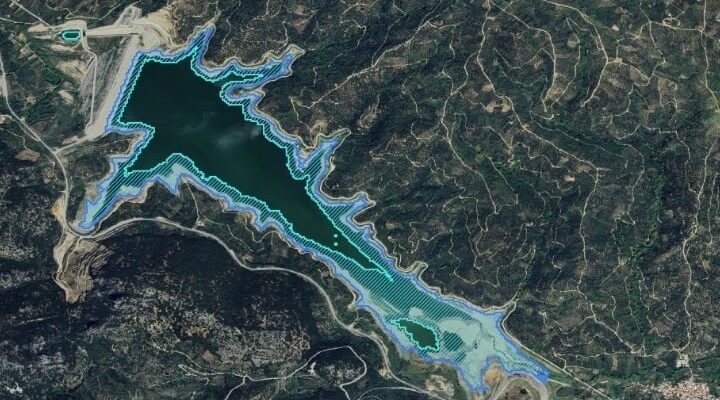The scientific community in Greece is sounding the alarm over the danger of water shortage in several areas of the country.
Fourteen Greek municipalities have been placed under a state of emergency by the General Secretariat of Civil Protection. Among them are five municipalities in Crete, Serifos, Sifnos, Leros, Poros, Spetses, the municipality of Sami in Kefalonia as well as areas in Corinth, Alexandroupolis and Xanthi.
The situation is made difficult by prolonged high temperatures combined with reduced rainfall in several areas. This coincides with the summer tourist season which is heading towards its peak.
“Our climate is changing, and this is evident from the temperatures,” Elissavet Feloni, Lecturer at the University of West Attica tells Greek Reporter.
“Over the past 12 months, both average monthly and maximum daily temperatures have been significantly above the 15-year values. For example, this past June, temperatures in many areas were 4 degrees above the average.”
She expresses her concern that the series of warm months was also accompanied by relative drought. There are several areas in the country where annual rainfall in the last year is up to 50 percent less compared to the average of the decade.
Overtourism leads to water shortage in Greece
“Unfortunately, the future looks bleak, as many climate models predict further development of drought and additional reduction in rainfall in the coming years, especially in southeastern Greece, by about 20 percent-30 percent,” Feloni says.
The drought has led to significantly reduced stocks in surface reservoirs and extremely low levels in underground water bodies, due to limited snowfall, she notes.
The Greek islands, in particular, face water shortages during the tourism season. Some of the Aegean and Ionian islands receive three to four times the tourism compared to their population.
“We must not forget the completely different consumption behavior of a tourist; a local in their home consumes 150 liters per day, while a tourist consumes 250 to 400 liters/person/day, with 80 of these for swimming pool use, and the same amount for watering,” Feloni tells Greek Reporter.
As she points out in the last few years, there a spike in the construction of pools and large gardens that need watering all day. “Indicatively, last August in a coastal area in Sifnos, the consumption was 13 cubic meters/hour, and this June it reached up to 25 cubic meters/hour.”
Water shortage in Athens?
On the islands, the solution is mainly provided through the operation of desalination units, which often do not suffice to meet the continuously increasing needs.
At the same time, one issue is the way these infrastructures are managed (maintenance of units, operation planning, regulation of stocks in tanks, etc.), and the losses in the water transportation networks.
In Athens, the situation is also critical (a ‘yellow alert’ based on the level of depletion of reserves in the reservoirs), where indicatively the annual consumption is 400 million cubic meters, Feloni notes.
In September 2022, the reservoirs contained 1.1 billion cubic meters, which reduced the same month last year to 950 million cubic meters, and the estimates for this September are about 700.
“The coming winter will be critical, where if the drought continues, the system is significantly pressured. The problem for Attica is exacerbated also due to water losses in the networks, which amount to 23 percent, with the average age of the water supply network being 60 years as a result of chronically low investments,” the Greek expert says.
Need for a change in culture
Feloni stresses that Greece is in an emergency condition, and it is crucial to take measures to limit consumption and subsequently to start a discussion about the most appropriate approach to Integrated Water Resources Management, which has already been delayed.
She recommends placing a limit on the construction of swimming pools. “It is not permissible to approve such an extent of pools on the islands.”
Promotion of the use of recycled water for industry and even more so for irrigation on some crops, the application of precision agriculture, and smart farming, which combines modern technologies, sensors, and data to optimize existing agricultural activities, is the future.
“It is necessary to develop a water-saving culture, at all levels. Naturally, it starts from school, but it also needs the example of water management in open communal spaces, and public buildings.”
Finally, Feloni notes that proper water management should be a priority, and should be implemented through a central state body responsible for water (quantity, quality, floods), which will also supervise the decentralized operation of local bodies, with authority, for example, at the level of a water district.
Related: Will Greece Face Water Shortages in This Hottest of Summers?



